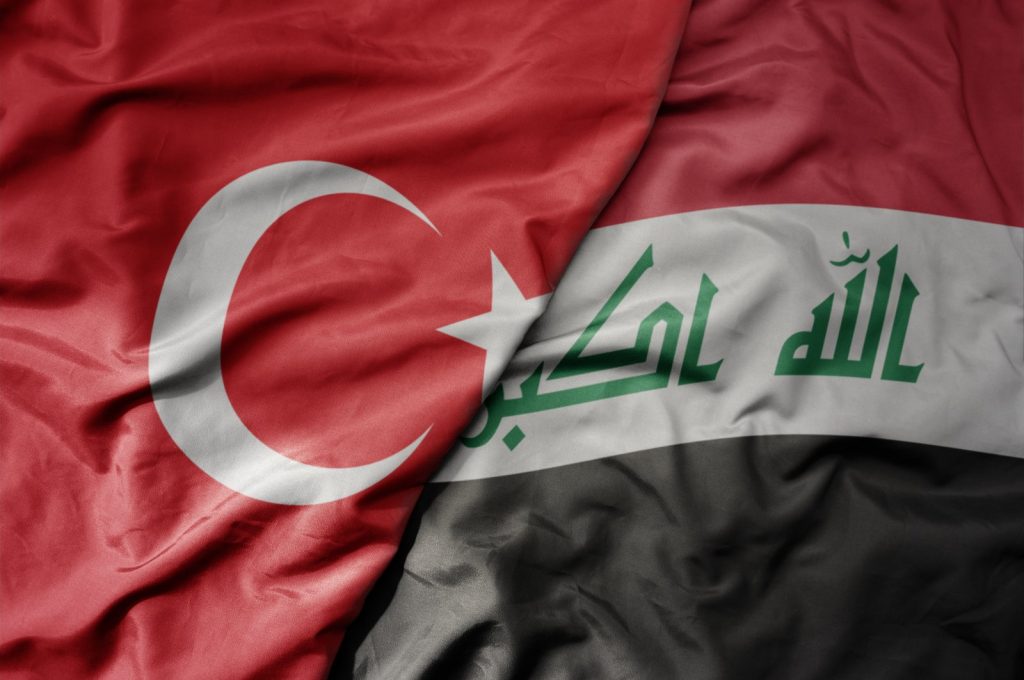After rocky ties between Ankara and Baghdad in recent years due to unresolved bilateral problems, President Recep Tayyip Erdoğan will pay a critical visit to Iraq on Monday, signifying a turning point toward a positive agenda in relations.
The visit, which comes after 13 years, will focus on four points: the fight against the PKK, the Iraq Development Road project, the water problem and pipelines.
Iraqi officials with whom I talked clearly have a more positive and willing attitude to overcome contentions than before. Several agreements will be signed during the Baghdad visit, after which Erdoğan will also hold talks with officials in the Kurdistan Regional Government’s (KRG) capital Irbil. All four points of the Ankara-Baghdad agenda also necessitate close cooperation with the KRG.
For Ankara, the most urgent issue is its ongoing fight against the PKK terrorist group. After Baghdad took recent steps to acknowledge Türkiye’s sensitivities, labeling the PKK as an illegal organization, Ankara expects Baghdad’s next step to be to label it as a terrorist organization in the near future.
Senior Turkish and Iraqi officials held high-level talks in Baghdad in March to discuss security issues. As a result and as an important achievement, the Iraqi National Security Council decided to consider the PKK a “banned organization in Iraq” and a joint statement on security issues was declared. Earlier that month, Iraqi Foreign Minister Fuad Hussein had told me that the two countries had finally worked on a road map to overcome differences regarding the PKK and security operations.
Türkiye wants to establish a 30-kilometer (18-mile) secure space near Iraq’s northern border where the PKK is concentrated. On the other side, it also has eyes on increasing the security of Iraq’s border with Syria, which the PKK frequently uses as a passage to sustain its operational ties with its Syrian wing, the YPG. An Iraqi official told me that a wall has already been built along the border but that doing the same in the Sinjar region is impossible due to the mountainous terrain.
The official voiced that Iraq insists on rooting out the PKK mainly with its own forces and capabilities. The PKK, besides camps and bases in the mountainous northern regions of Iraq, is also entrenched in Suleymaniyah and even in institutions in Baghdad. Iraq’s tumultuous decades and most recently the fight against Daesh have cost the country invaluable years that could have been used for institution-building and raising an orderly army. How Baghdad will rise above the challenge of eradicating the PKK without a significant presence of the Turkish Armed Forces (TSK) remains a question.
However, Baghdad warmed up to the idea that joint military training and a joint operation center could be established, showing a willingness to make progress with Türkiye.
It should not be forgotten that eliminating the PKK from Iraq is not only crucial for Ankara but also for Baghdad as the terrorist organization does not even hold territory in Türkiye but rather in Iraq as an illegal non-state armed actor.
A project set to thrive
Although the agreement to be signed on the Development Road Project will not be ready for Erdoğan’s visit due to hurdles, it will constitute the second most important agenda.
Iraq has set its eyes on the project with strong determination as it will be vital in representing an alternative income for the country than oil.
The megaproject, which will link the Persian Gulf to Europe via Iraq and Türkiye with railways, roadways and ports, has the potential to gain even bigger significance by being connected to China’s Silk Road.
Yet, international pressure against the project exists.
Water politics
Put forth by Iraq, the agenda of reaching a fair and equitable solution for water management will be discussed on Monday. Almost all countries in the Middle East are short of water, and water management has thus to be sensitively regulated to prevent the issue from adding to the already abundant problems of the region or causing further tension.
The Tigris and Euphrates rivers originate in Türkiye but make up a large percentage of Iraq’s fresh water source. Türkiye will help Iraq in overcoming problems that lead to water scarcity and are not rooted in Ankara’s management of the problem. Outdated irrigation methods, storage and the lack of modern methods for water sustainability in a changing climate are some of the main reasons that cause problems for Iraq and Türkiye. Consultancy and projects will help Iraq in dealing with waste and mismanagement.
KRG-Baghdad pipelines
Baghdad is repairing a pipeline that could allow it to send 350,000 barrels per day (bpd) to Türkiye by the end of the month or next month, in a step likely to rile oil foreign companies and the KRG. The reopening of the Kirkuk-Ceyhan pipeline, which has been shut for a decade, would provide a rival route to a pipeline from the KRG that has been shut for a year as talks between Baghdad and the KRG on resuming exports have stalled.
The Iraqi official told me that Baghdad was willing to open the pipeline that had been damaged due to Daesh; however, another Turkish official did not have high hopes. A Turkish Energy Ministry source said that Baghdad made similar announcements of reparation and reopening of the pipeline in 2021 but that no result had been achieved. Pointing to internal quarrels with the KRG, the source said that Baghdad is exploiting the pipeline being closed and thus keeping the price of barrels high.
Looking at the four agendas, it is clear all of the problems could be mastered through win-win cooperation. Türkiye and Iraq are enjoying growing trade relations. The creation of the Development Road and the eradication of terrorism will further boost the two neighbors while significantly helping Baghdad get out of its war spirals and enter the international community as a stable country that looks to the future and advancement.


